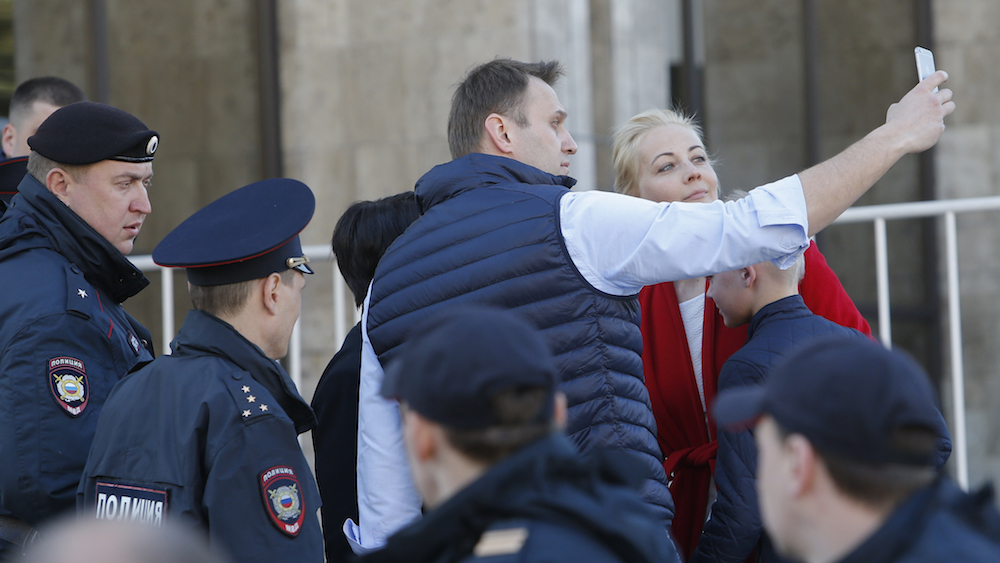Long a hot-button topic, freedom of information in Russia has been steadily eroding for the better part of a decade. A new law promises to restrict things even further.
In late July, President Vladimir Putin signed law 276-FZ , which amended the federal law “on information, information technologies, and information protection.” With a stoke of his pen, he tightened the net of censorship in Russia even further. The law bans anonymous messaging applications and the use of virtual private networks (VPNs), both of which are used to communicate and browse the internet free from government snooping. While wildly popular with young Russians, one such encrypted messenger was reportedly used by the perpetrators of April’s terrorist attack in St. Petersburg – and the Telegram app’s founder, Pavel Durov, has been locked in a power struggle with authorities, having refused to provide them with backdoor access to the app’s databases.
There are therefore legitimate concerns over the role such technology plays in terrorist attacks. On the other hand, the timing and nature of Law 276 indicates a purpose beyond making life difficult for potential terrorists. In recent months, independent media outlets have also come under increased pressure: at the popular Vedomosti daily, a new editor-in-chief has been brought in from state-run TV, while the Moscow Times has also experienced editorial reshuffles. Such crackdowns had been relatively infrequent in the months prior, making these two all the more unusual.
It would be naive to assume that these events are not linked. The government is facing a level of domestic unrest not seen since the 2011 protests at Bolotnaya Square. Populist firebrand Alexei Navalny is mounting a ferocious political campaign on an anti-corruption platform, organizing several marches throughout the country, and anti-regime bloggers have become so prominent that they are being doused with fluorescent antiseptic by pro-regime activists as a method of public intimidation.
In light of this, two explanations exist for the introduction of this law. The most obvious is that the Kremlin has realized the need to re-assert its grip on the information sphere. From this perspective, Law 276 should be interpreted simply as updating the Kremlin’s legal toolkit. Packing editorial boards with cronies helps to control the narrative in print media, but there are few such boards in the deep web; the tech sector has inserted itself into the media and communication sphere, rendering almost useless the state’s previous playbook for controlling public narratives. Just as the SORM initiative was introduced as the internet exploded in popularity in the 1990s, Law 276 represents a riposte to the advance of technology in the late 2010s.
Russia is far from alone in fighting against encrypted messaging – the pitched battle between WhatsApp and US law enforcement is evidence of this. Yet intelligence services are – or should be – loath to conduct their business in the open. If the FSB or CIA can access these ostensibly secure services, the public would surely not be informed; in any case, introducing new legal tools will not help the state to crack encryption.
A Political Signal
When viewed in the context of the boardroom-level struggles of recent months, it becomes clear that the Kremlin is not seeking to improve its snooping capability. Rather, the explanation lies in its desire to send a political signal. If existing ways of browsing anonymously are banned, it will surely not be long before new tools are invented. A truly determined terrorist will simply turn off his or her phone to avoid being tracked. On the other hand, a curious young Russian may not want to break the law simply to understand why Putin has a $1 million watch. The Russian public will appreciate seeing the state taking apparently concrete steps to combat terrorism. Meanwhile, protest movements – often organized through Telegram and similar apps – will now become harder to convene, with their leaders facing prosecution even before taking to a stage.
This tells us two things. First, the state is getting increasingly worried about Navalny and his ilk. Anonymous messaging and browsing existed long before the horrific attack on St. Petersburg’s underground, and limiting them will be ineffectual in preventing further violence. This law, then, is a reaction to the increasingly vocal political unrest. Introducing new legislation is a relatively cost-effective way of discouraging Russians from engaging in investigative journalism at home. Such a tactic is also politically savvy, signaling to domestic audiences that the government is tough on crime and terrorism.
Second, the Kremlin has made it clear that it is not giving up on the fight against encryption just yet. Even as it appears increasingly difficult to entirely ring-fence political opposition and limit their influence on mainstream Russian narratives, the pitched battle continues between a privacy-obsessed tech sector and a state which abhors being in the dark about its citizens’ browsing habits. For those who want anonymity online – terrorists and dissidents alike – Putin has a message for you: you’re being watched.







